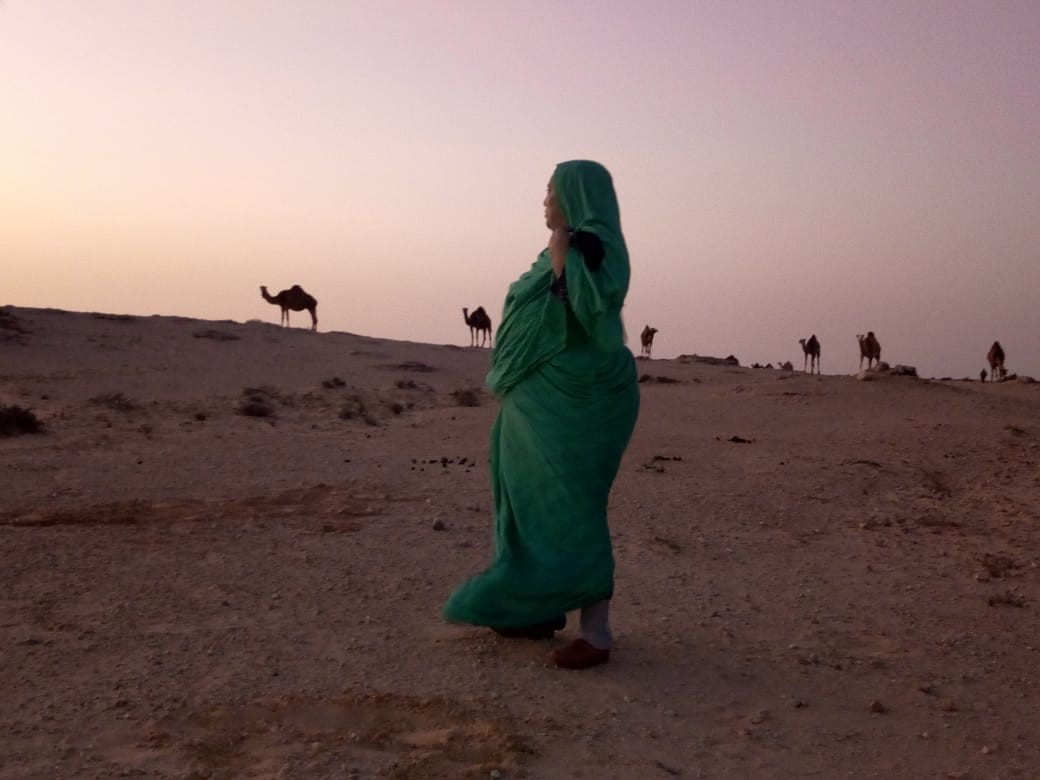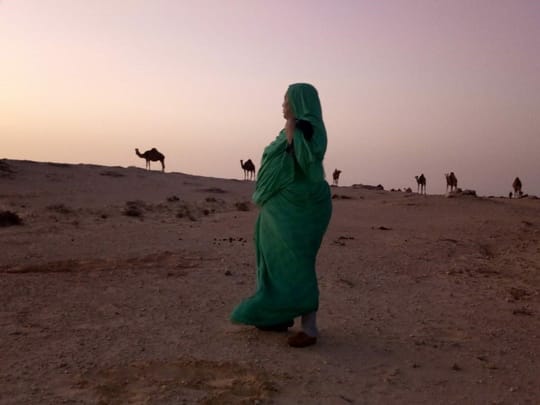المسار التنموي بالأقاليم الجنوبية: إلى أين؟, Cawalisse.
By: Hana Ezaoui, Project Manager, Southern Provinces
Development programs aim at helping specific regions thrive and attracting more foreign investors in order to boost the regions’ economic activity and overcome the development stagnation affecting several regions in the Kingdom of Morocco. But are Morocco’s southern provinces experiencing similar developments?
The amount of attention and care King Mohammed VI, may Allah preserve him, has dedicated to southern provinces is indisputable. They are among the most important territories to be included in the development plan so as to keep pace with other regions in the Kingdom, both economically and socially. The region has hosted several programs and events that brought together diplomats, jurists and investors from all over the world in order to contribute to the development of these provinces, enhance openness, reduce social issues, as well as promote the intellectual and political integration of the region.
We welcome the royal decisions and the suggestions of the Special Commission on the Development Model, but we firmly refuse the political manipulation of the issue of Moroccan Sahara to cause intellectual chaos that renders the Moroccan Sahrawi citizen vulnerable to all sorts of humiliation and all kinds of mental illness, or even depression resulting from psychological instability. Although Moroccan Sahrawi citizens receive all royal care, they still live in poverty while they belong to a region rich with its land and sea. Their dignity, customs and traditions are the only reasons preventing them from begging on the streets. Despite the fact that the region teems with resources, most of the population live in poor conditions with the exception of a select few who are enjoying a life of obscene extravagance.
Most citizens are reluctant to claim their rights fearing that others will take advantage of the situation to achieve their personal political goals, which in turn negatively impacts the citizens themselves.
On the one hand, rural areas, where nomads live, lack wells, which are the only source of water for the population and their livestock, and even if some of them contain water, it is either scarce, salty, or undrinkable. On the other hand, cities complain about the lack of urban facilities and environmentally-friendly projects, such as the absence of nurseries or sceneries that help alleviate the sufferings of the population.
In addition, most schools in the region suffer from poor infrastructure, the scarcity of green spaces, and other basic issues. As for the health sector, despite some limited efforts geared toward enhancing the situation, the competent departments are almost nonexistent. Moreover, unemployment remains one of the major causes of youth disempowerment in the region, while other actors take advantage of the situation to brainwash them.
Morocco’s openness to the international market, international organizations, the establishment of consulates along with the adoption of the participatory approach, as well as many other steps that are being taken, is considered a real diplomatic phenomenon that has managed to bring the government closer to the people. However, citizens in general, and the Sahrawi citizens in particular, continue to endure several hardships and seek help from foreign investors, but to no avail. Yet, a limited number of organizations provide the population with the necessary support and select among them representatives and members to act on behalf of the community.
The High Atlas Foundation (HAF) was the first organization to adopt the participatory approach so as to identify the issues facing the population and contribute to finding the most plausible solutions. This Moroccan-American organization, represented by a female Sahrawi citizen, has developed a strong bond with the local community. It has also contributed to the realization of most of the demands of the population, such as organizing environmental and awareness-raising activities; planting more than a thousand fruit trees; establishing educational institutions; assisting nomads through setting up water supply systems; and hosting various meetings and events despite the regions’ challenging circumstances, the long distances, the heat, and the spread of active mines.
Thanks to its ongoing quest for substantial solutions, HAF has managed to provide the region with foreign aid through partnering with several companies, including Kosmos Energy, Siemens Gamesa, the International Monetary Fund, and other partners of the organization, namely its president Dr. Yossef Ben-Meir, who has won the hearts of every Moroccan Sahrawi.
As mentioned above, HAF has successfully implemented the development projects targeting the southern provinces that His Majesty King Mohammed VI has called for through participatory analysis and self-empowerment. The organization has implemented several projects that have contributed to making true sustainable development a reality. Nonetheless, there are other potential projects that have not yet gained attention and ideas that have not yet been realized. As a result, HAF has become frustrated with the lack of positive interaction, especially since these projects were suggested by the local community itself and that will benefit the entire region. Neglecting such promising projects will negatively impact the affected population as well as the organization, thus impacting the presence of HAF in the south, which would be a significant loss on all levels. Will the organization and its social development proposals find a listening ear within the new government? Or will development projects in the south soon come to an end? As all citizens, I am full of hope for a better tomorrow.
Arabic Version
الهدف المنشود من البرامج التنموية هو ازدهار مناطق معينة واستقطاب عدد أكبر من المستثمرين الوافدين البها للرفع من النشاط الاقتصادي والحد من الركود التنموي الذي يمس عددًا من جهات المملكة المغربية. فهل ينطبق الأمر ذاته يا ترى على أقاليم المغرب الجنوبية أيضًا؟
لا يختلف اثنان على المكانة التي تحظى بها الأقاليم الجنوبية لدى الملك محمد السادس حفظه الله: فهي من الجهات الأكثر أهمية و المرغوب دمجها في المخطط التنموي لتساير جهات المملكة اقتصاديا واجتماعيا. استقطبت الجهة برامج كثيرة وفعاليات عديدة جمعت الدبلوماسيين بالحقوقيين والمستثمرين من كل بقاع العالم، من أجل المساهمة في تنمية هذه الأقاليم ومساعدة الساكنة على مزيد من الانفتاح، وللحد من المشاكل الاجتماعية، ولدمج المنطقة على المستويين الفكري والسياسي
مرحبًا بالقرارات الملكية، وأهلًا بمقترحات اللجنة المشرفة على النموذج التنموي، لكن لا أهلًا ولا سهلًا بأي مستغل لقضية الصحراء المغربية سياسيا بنية خلق الفوضى الفكرية التي تلخبط المواطن الصحراوي المغربي وتجعله عرضة للإهانة وكل أنواع الأمراض النفسية، أو حتى العيش في اكتئاب ناجم عن عدم الاستقرار النفسي. وبالرغم من كون المواطن الصحراوي المغربي يلقى كل الرعاية الملكية، إلا انه لا يزال يعيش الفقر مع انتمائه لمنطقة غنية ببحرها وبيدائها، كل ما يحول بينه وبين التسول هو الأنفة و العادات والتقاليد التي تجعله لا يرضى المذلة. وفي ظل كل الخيرات التي تتمتع بها المنطقة، إلا أن اغلب الساكنة تعيش الهشاشة، مع استثناء فئة قليلة تزدري في الغنى والبذخ الفاحش
ويبقى اغلب المواطنين في حيرة من أمرهم لا يستطيعون المطالبة بحقوقهم لان هناك من يمتطيها لنواياه السياسية، الأمر الذي يؤثر سلبا على المواطن نفسه
تفتقر البوادي، حيث يقطن الرحل، إلى الآبار التي تروي عطشهم وتسقي أغنامهم أو إبلهم، وحتى إن وجد الماء في بعضها، فهو إما قليل لا يسد الرمق، أو مالح وغير صالح للشرب. وتشكو المدن هناك افتقار لكل ما هو حضري، ولما يحفظ البيئة، فلا مشاتل في المستوى ولا مناظر تجعل تنعش الساكنة أو تنقص من معاناتها
وحتى المدارس فاغلبها تشكو هشاشة البنيات التحتية وندرة الفضاءات الخضراء، وغير ذلك من القضايا الأساسية أما قطاع الصحة، فتكاد الإدارات المعنية تكون أشبه بحبر على ورق لا غير، رغم بعض الاجتهادات المحتشمة هنا وهناك. وتظل البطالة سببًا رئيسا ينكس عيش الشباب ويزيدهم كآبة، في حين تستغل جهات معينة الوضع لغسل أدمغتهم
إن انفتاح المملكة المغربية على الشركات العالمية، والمنظمات الدولية، والقنصليات، وخلق لجان تعنى بالقضايا التنموية، والنهج التشاركي الذي تعتمده البلاد، وغير ذلك من الخطوات، ظاهرة دبلوماسية حقيقية تقرب الحكومة من الساكنة. لكن المواطنين عموما، و مواطني الجنوب خصوصا، لا زالوا يعانون و يبحثون عن ضالتهم في أعين كل الوافدين دون جدوى، إلا من رحم الله من المنظمات التي تحيط الساكنة بعناية أكبر وتنتقي منهم ممثلين وأعضاء
يأتي الذكر هنا على مؤسسة الأطلس الكبير، التي كانت السباقة إلى خلق الحدث باعتماد المقاربة التشاركية والقرب من الساكنة لتحديد المشاكل، والمساهمة في إيجاد الحلول الأنسب لها، فكانت إدارة هذه المؤسسة الأمريكية المغربية، التي تمثلها ابنة الصحراء، حاضرة دائما مع الساكنة وقريبة منهم. بل إنها ساهمت أيضا في تحقيق أغلب مطالب الساكنة من خلال أنشطة بيئية وتوعوية، وعبر غرس شتلات الأشجار المثمرة التي تجاوزت الآلاف، أو عبر تهيئة المؤسسات التعليمية، والمساهمة في مساعدة الرحل من خلال تهيئة وتجهيز نقاط للتزود بالمياه، وعقد لقاءات وفعاليات مختلفة رغم ظروف المنطقة الصعبة، وبعد المسافات، وحرارة البادية، وانتشار الألغام النشطة. وبفضل بحثها المتواصل عن حلول جوهرية، وفرت مساعدات من بعض الشركات الأجنبية، مشكورة، أبرزها: شركة كوسموس إنرجي، وشركة سيمنس كاميصا، والصندوق الدولي، وغيرها من شركاء مؤسسة الأطلس الكبير، في شخص رئيسها الدكتور يوسف بن مير، الذي ذاع صيته في قلوب كل صحراوي مغربي من الرحل وبين عائلات التلاميذ

كما ذكر أعلاه، فإن إدارة الأقاليم الجنوبية التابعة لمؤسسة الأطلس الكبير نجحت في تطبيق كل ما دعا إليه جلالة الملك محمد السادس لتنمية المناطق الجنوبية، وذلك اعتمادا على التشخيص التشاركي والتمكين الذاتي. وقد أنجزت عددًا من المشاريع التي ساهمت في ترجمة التنمية المستدامة على أرض الواقع، وهناك مزيد من المشاريع على الورق لم تجد آذان صاغية إلى الآن، أفكار رغم الإلحاح عليها لم تتحقق بعد، وهنا أصبحت الإدارة تحس بالإحباط وغياب التفاعل الايجابي، خاصة وأن المشاريع هي اقتراحات من الساكنة المحلية نفسها، والتي سترجع بالخير على المنطقة و ساكنتها. في حين سيؤثر تجاهلها سلبا على الساكنة المتضررة وعلى الإدارة، وبالتالي عدم استمرارية مؤسسة الأطلس الكبير بالجنوب وهذه خسارة كبيرة على جميع الأصعدة. فهل ستجد المؤسسة واقتراحاتها التنموية الاجتماعية من يستجيب في الحكومة الجديدة؟ أم أن البناء بالمنطقة الجنوبية كان على قاعدة رملية سرعان ما نالت منها الرياح العاصفة؟ كما هو حال كل المواطنين، كلي أمل في ان الغد سيكون أفضل
بقلم: هانا الزاوي، مديرة مشاريع مؤسسة الاطلس الكبير بأٌقاليم الصحراء المغربية
